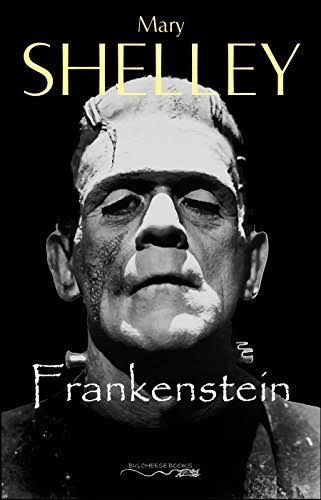Frankenstein ; Or, The Modern Prometheus
Jun 02, 2019 • 91 views

Frankenstein is a science fiction novel which was first published in 1818, reprinted in 1823 and revised in 1831. This novel is a “history of resurrection”. It comes under the Romantic Period/Age and at that time the “preface” of this novel was written by Percy Shelley (husband of Mary Shelley) for the anonymously published 1818 edition. At that time women writers were not accepted by the society but this novel was actually written by Mary Shelley. This novel was very popular at that time and still, it is. People were amazed after they got to know that the writer of this book is a “female”. Maya Joshi highlighted that the disclosure with the 1823 edition, that the writer was a woman, elicited the following dubious compliment from Blackwood’s Edinburgh magazine (March 1823): “for a man it was excellent, but for a woman it was wonderful”.
The title itself “Frankenstein; or, The Modern Prometheus” include “Prometheus”, the man who is made from clay. He rebels against God and then he gets a cycle of punishment, he was tied to a rock and his liver was eaten every day.
Did I request thee, Maker,from my clay To mould me man? Did I solicit thee From darkness to promote me? --------- Paradise Lost.
The above-mentioned lines are taken from "Book 10, Paradise Lost". These lines are spoken by Adam when he was thrown out from celestial (Garden of Eden). Adam is asking from authority i.e God, he is asking that did I ask you to make me? The creature has the power to ask the creator. The novel is full of questions. We can interpret that Mary Shelley has mentioned these lines in the epigraph to show that the questions are more important than answers. The creation is fully responsible for the creator. Mary Shelley questioned the "paternal authority" (creator).
Mary Shelley might be criticizing her father, William Godwin, by dedicating this novel to him. As her mother died during her childbirth and father was mostly missing in her growing period from childhood. She craves for love from her childhood. In the same way, the character Frankenstein in the novel craves for love and also the monster who is created by Frankenstein. The figure of Prometheus can be compared to both Walton, Frankenstein, and monster. Walton and Frankenstein both were like Prometheus, who wants to do something great which is never done before.
The Preface written by Percy Shelley is much more theoretical in nature and on the other hand, the Introduction to Frankenstein, third edition (1831) which was written by Mary Shelley, is personal in nature. She is a widow now. She faced the crisis of inferiority when she marries someone who was superior to her. There was a parental force on her as she was forced to write because she, the only child of two famous writers.
Frankenstein constantly evokes the image of "sublime" - how nature can soothe him in the days and in the night, the mountains haunt. Edmund Burke calls the "terrible beauty". Beautiful scenery gives both peace and fear. The healing power of nature felt by Frankenstein.
This novel is Gothic in nature and it was very popular and different from the rest of the female authors as a writer like Jane Austen who wrote about love and marriage in "Pride and Prejudice" and many others.
